TRAFALGAR 200 CELEBRATION, Oct 2005
To mark the 200th Anniversary of the Battle of Trafalgar in 1805 a celebration was held which included the unveiling of the ‘Nelson Gates’, part of the Marine Cove regeneration project, and the unveiling of a plaque commemorating H.M.S. Burnham.
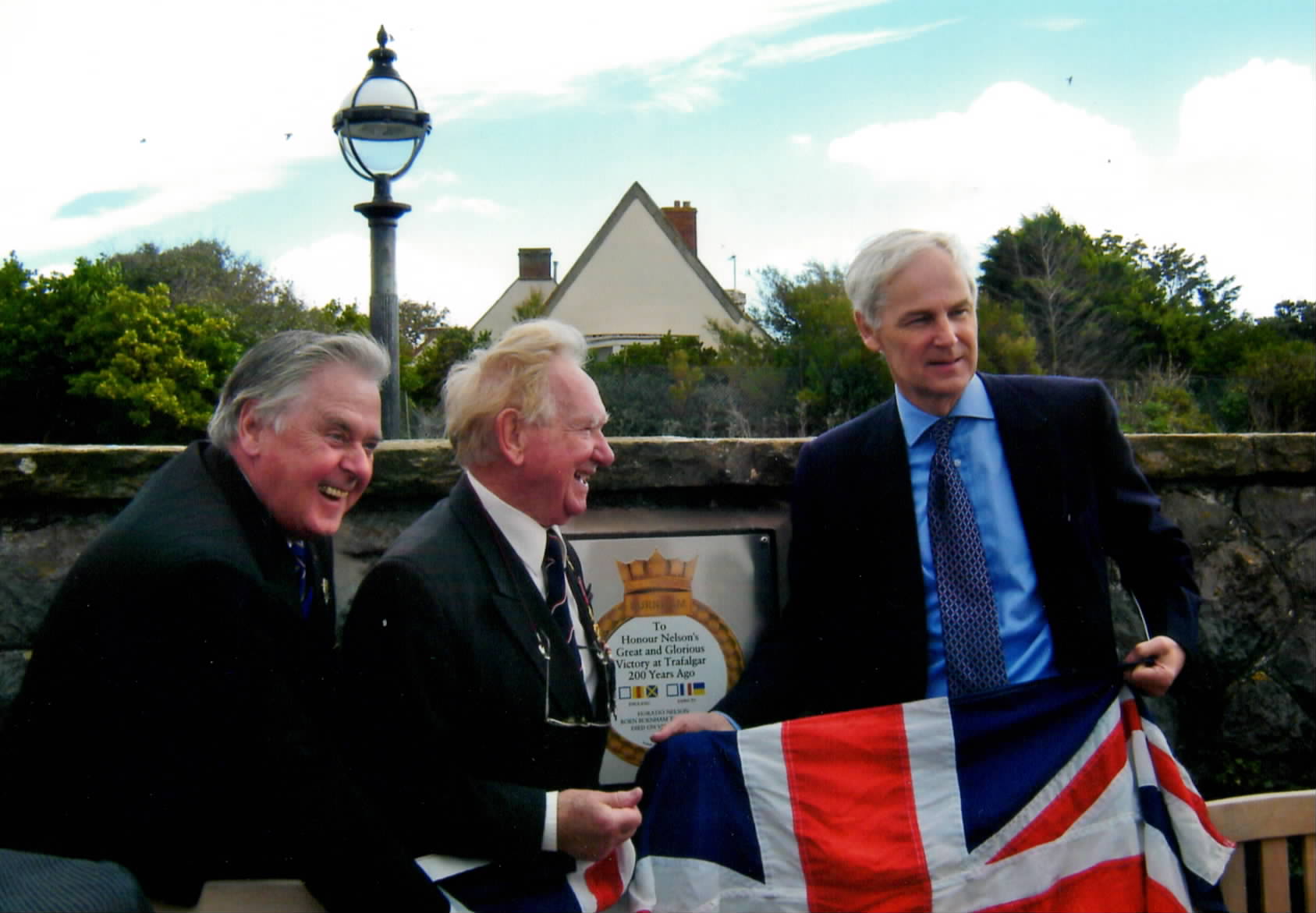
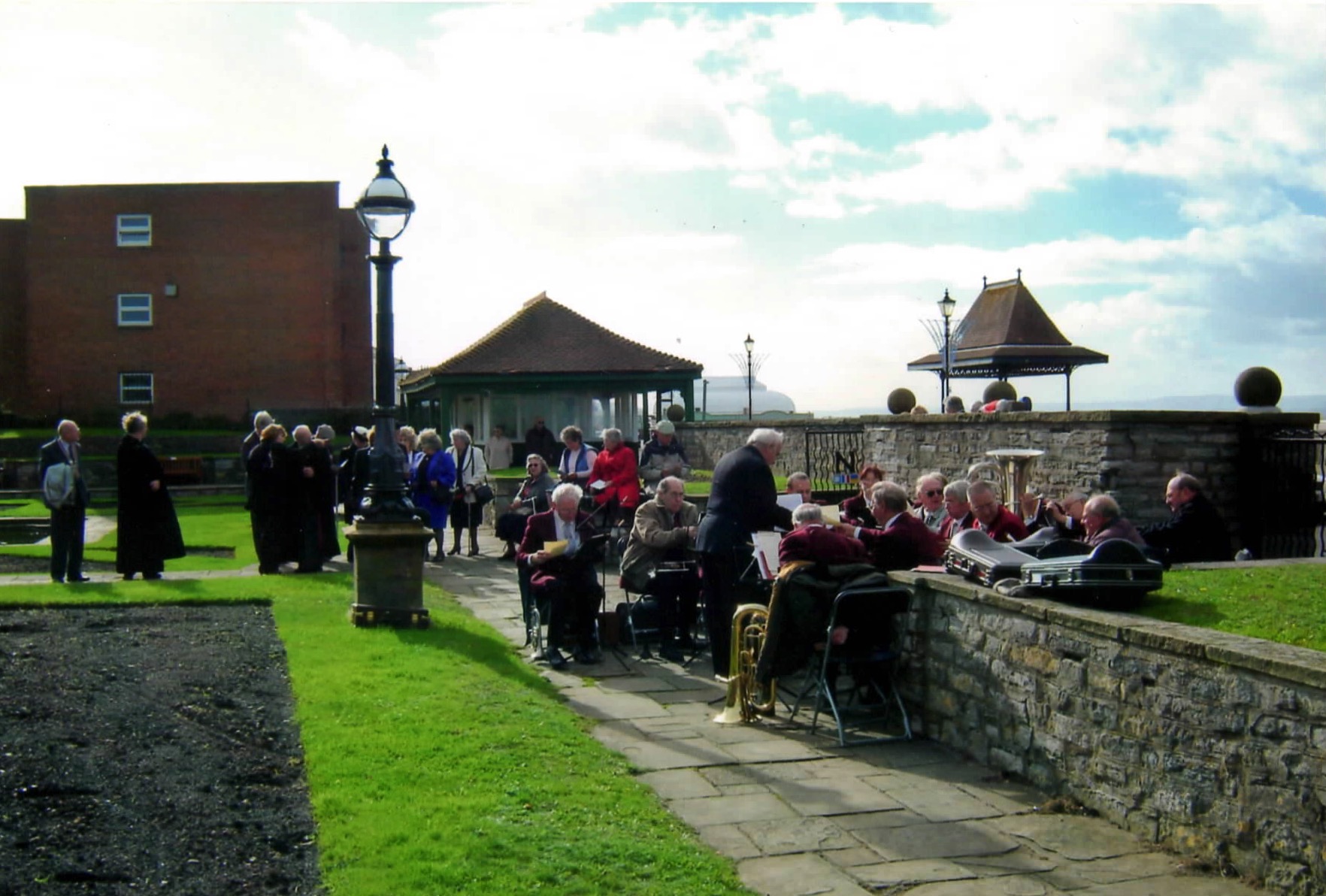
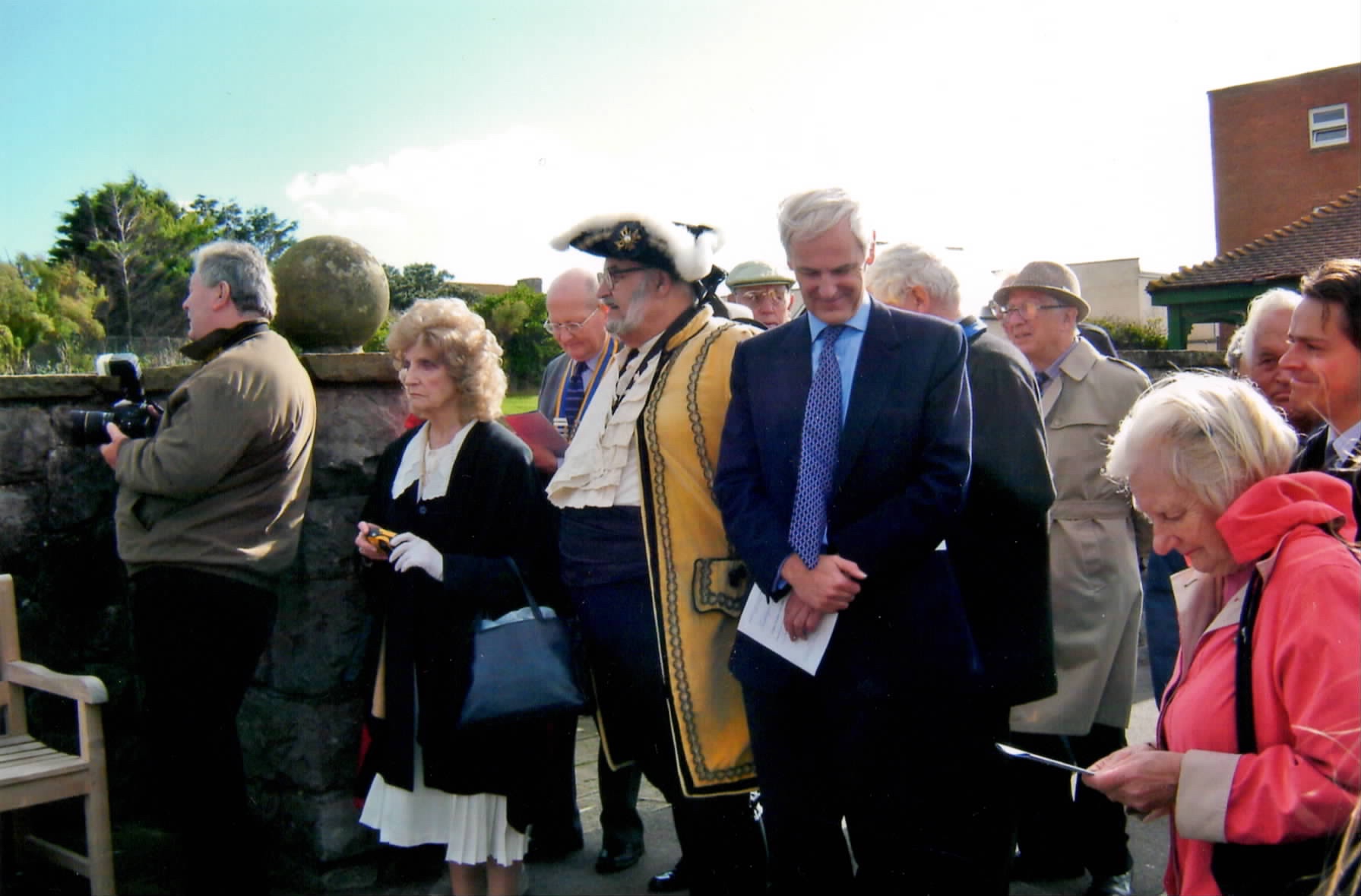
A luncheon was also held at the Council Chamber including the presentation of a White Ensign with Standard, to be housed in the Council Chamber, and participation by T.S. Dulverton, the local Sea Cadet Unit.
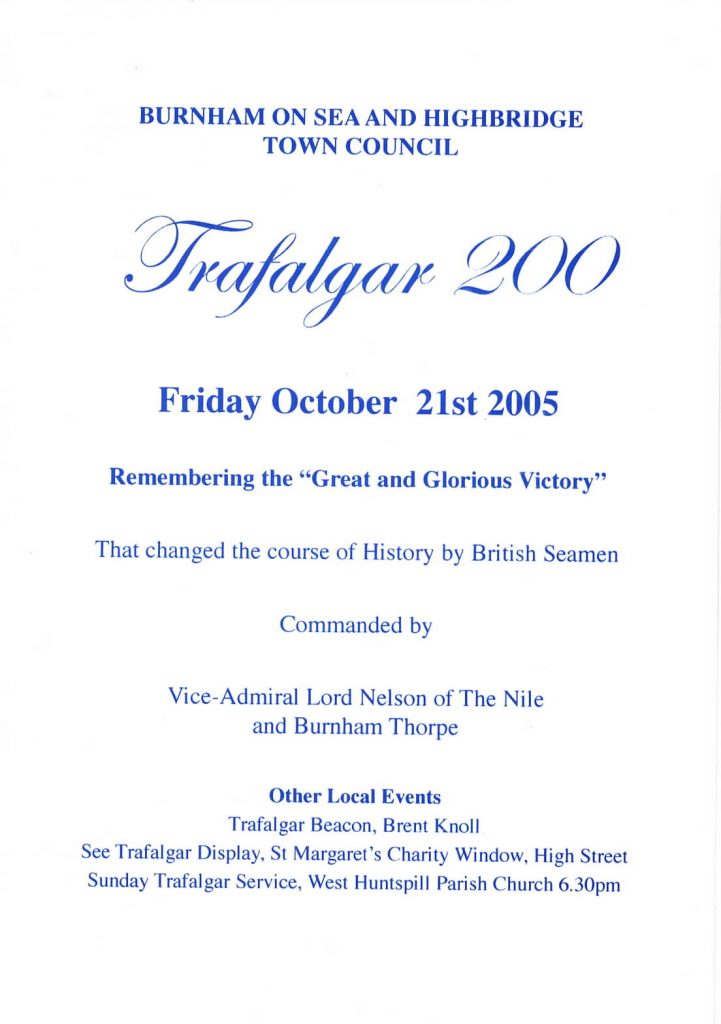
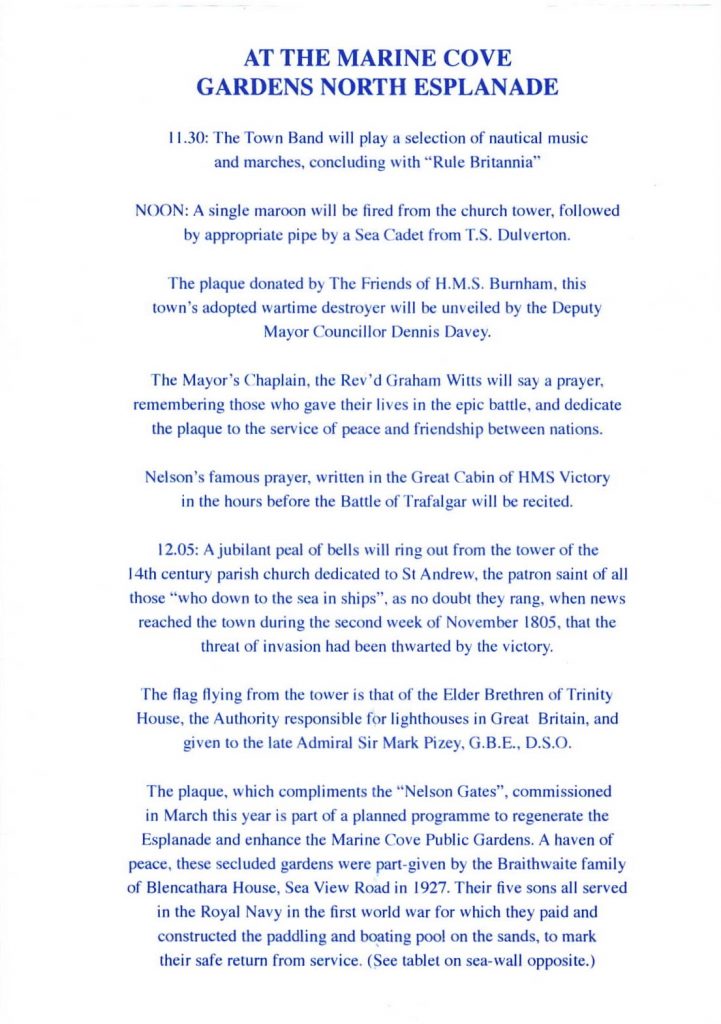
Thanks to Ann Popham for loan of brochure.
HERITAGE TRAIL OPENING – August 2014
The Burnham Heritage Trail was funded by the Heritage Lottery Fund and developed by the N.S.L.H.G. in association with Somerset Film and supported by the Town Council.
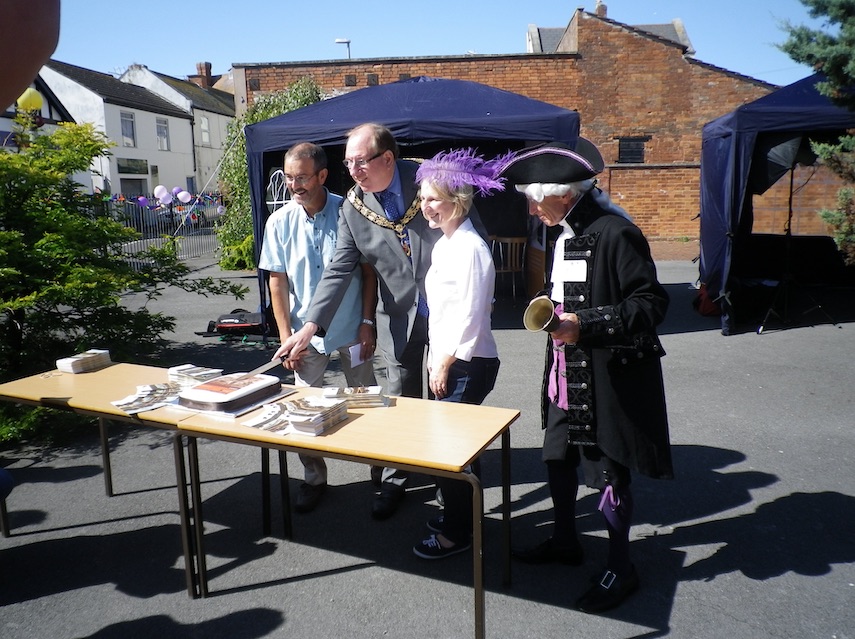
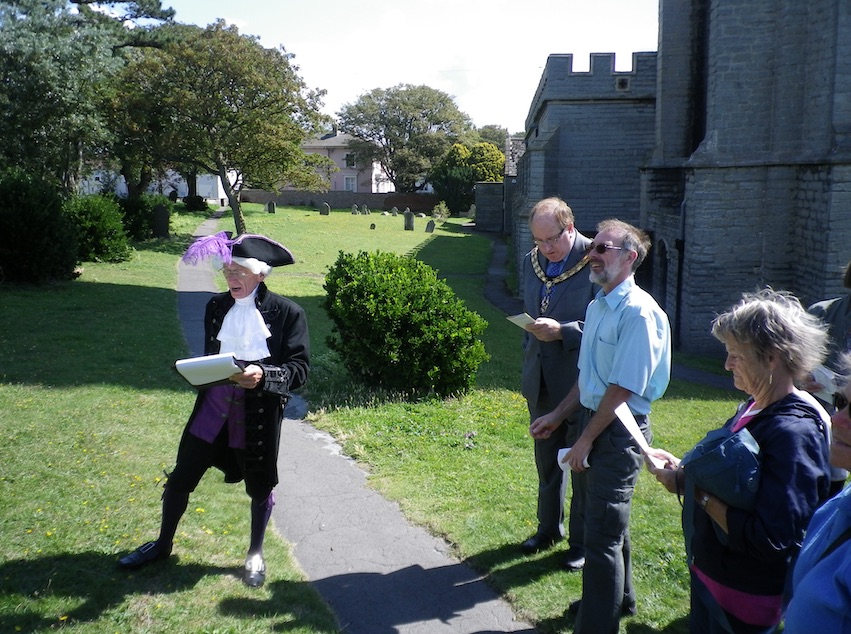
CIVIC AWARDS
An annual ceremony takes place to give awards for outstanding contributions to the community. Below are extracts from an example programme from 2014.
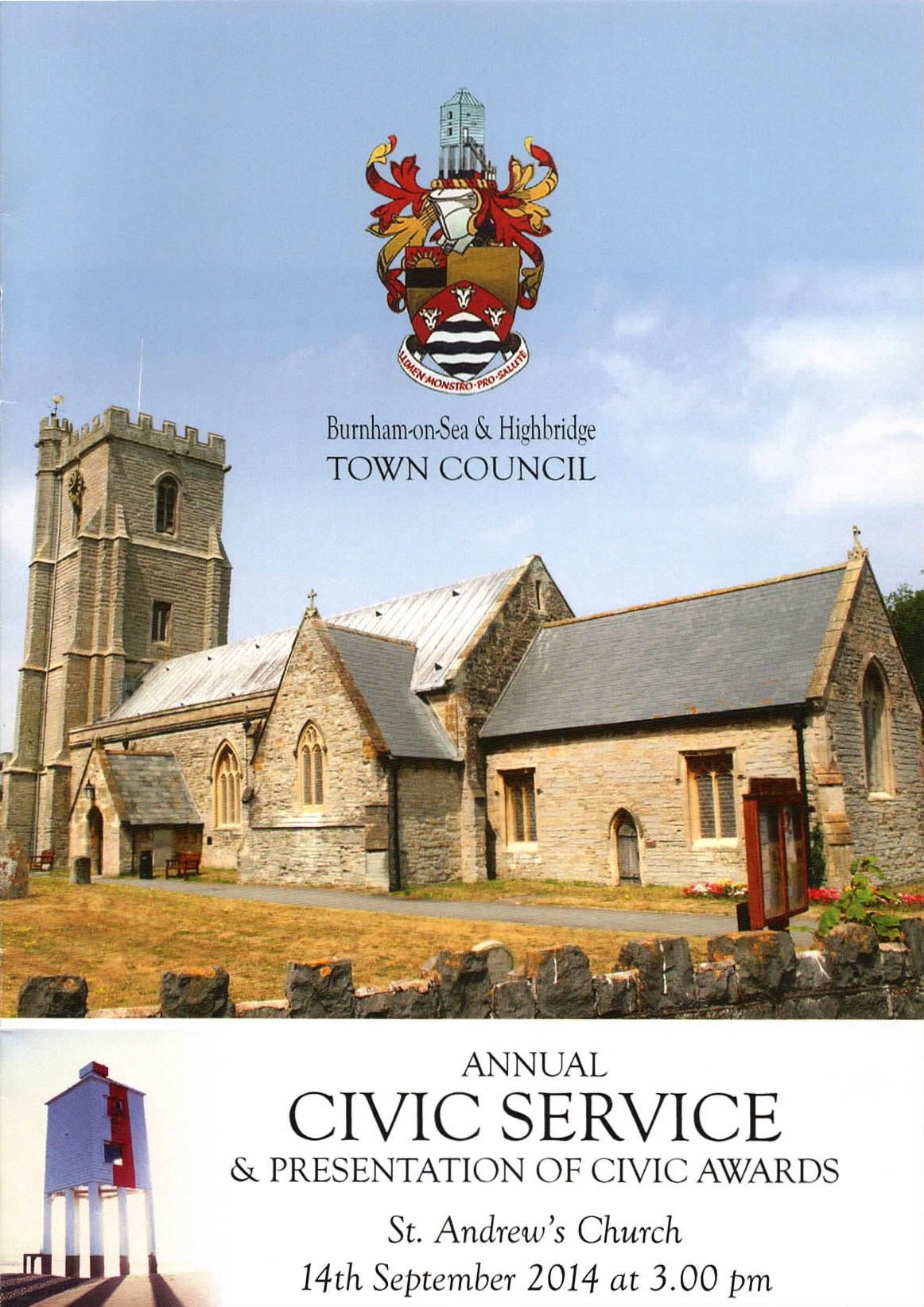
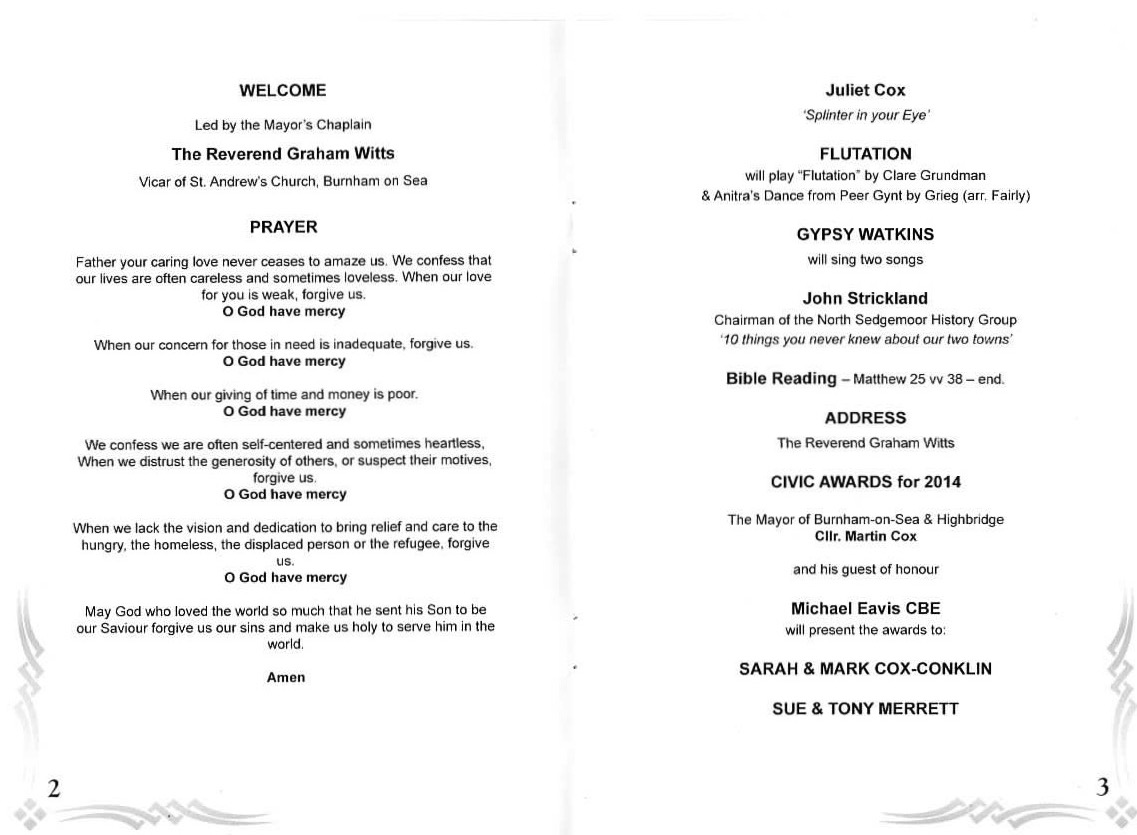
THE FIFTY DESTROYERS PROJECT 2015
Two plaques commemorating the receipt of destroyers from the U.S.A. during WWII were placed on the sea front (see information about ‘Warship Weeks’ on Wartime page).
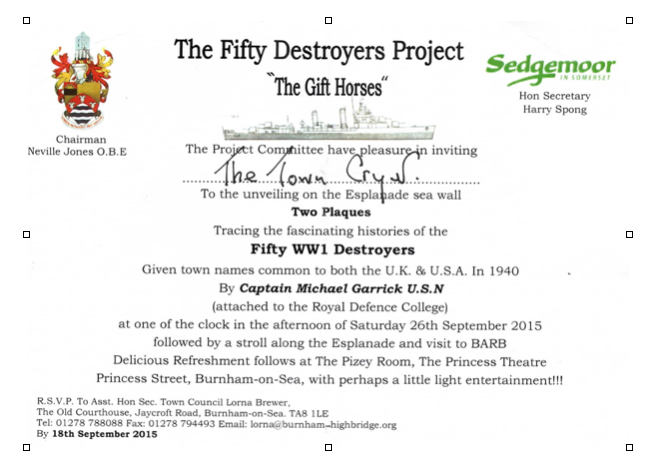
BUFFER STOPS – August 2015
In 2009 discussions began with BAE Systems about recovery of a set of buffer stops, similar to those once used at Burnham station, from the former Royal Ordnance Factory site at Puriton.
Refurbishing the stops, Identifying a site for them as close as possible to the site of the original Burnham terminal buffer stops and securing permission, all legal necessities and agreements with the Town Council about ongoing upkeep proved a lengthy process, which was undertaken by a special project group of the North Sedgmoor Local History Society, with the support of a number of other agencies.
It was not until 2015 that all of the necessary work had been completed and the buffer stops were ready to be unveiled. The stops now form the starting point of the Heritage Trail.
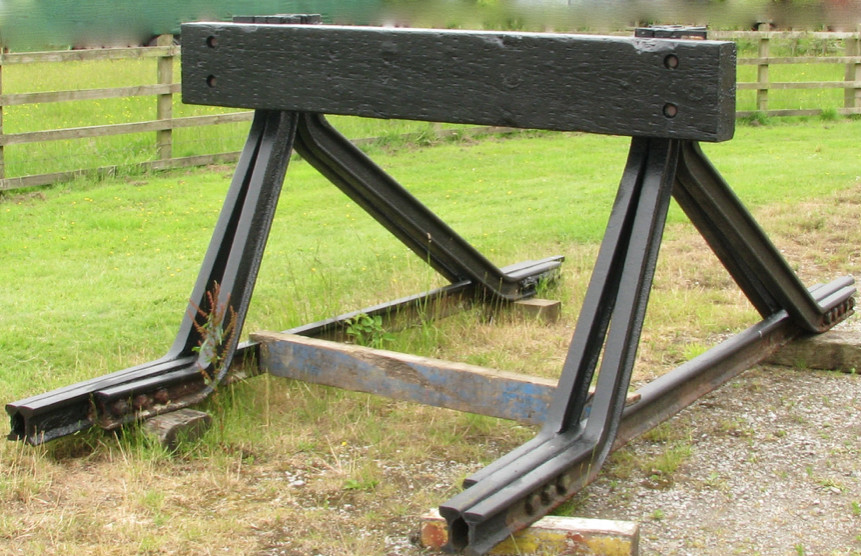
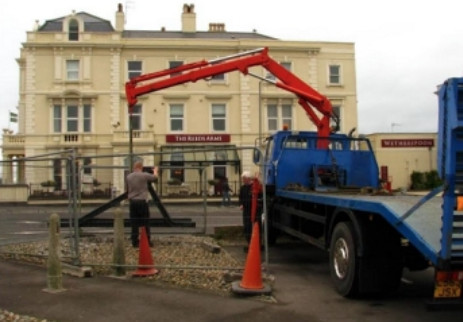
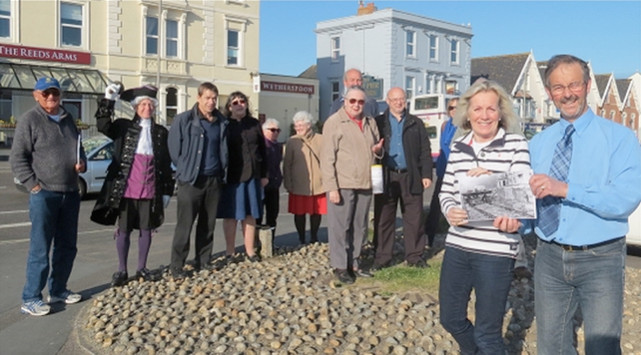
For more images see Burnham’s Railway – Now & Then
BURNHAM RAILWAY HERITAGE GROUP
A core group of members of the Buffer Stops project group went on to develop an independent group to promote Burnham’s railway heritage.
As its first project the group had hoped to source a signal of the original type to be erected near to the site of Burnham’s original signal. It proved impossible to obtain an old signal in sufficiently good condition. It also emerged that such a structure would exceed the height allowed by planning regulations. Efforts were therefore directed at sourcing a replica signal, with the help of the Gremlins Carnival Club.
As this turned out to be lengthy process an interim project of obtaining a replica station sign to be located on the site of the old excursion platform alongside Marine Drive, close to where the original sign stood.
Following on from this in June 2016, with the co-operation of both the Town Council and Somerset County Council, the name of the portion of Marine Drive between its junction with Pier St and the entrance to the Burnham Holiday Village was renamed ‘Old Station Approach’
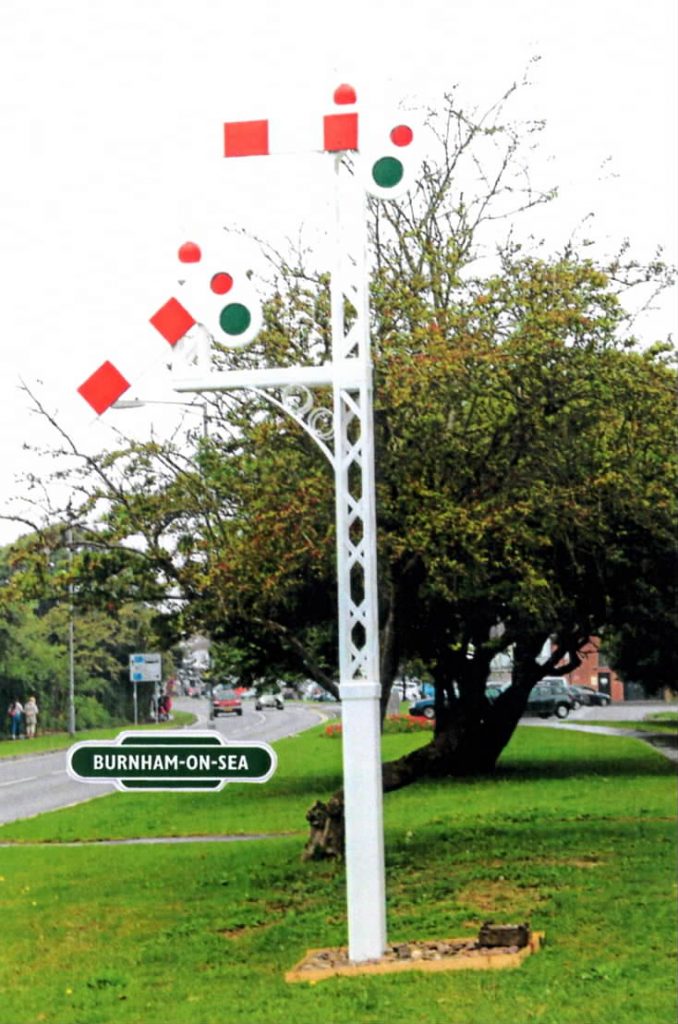
The replica signal was installed alongside Marine Drive in August 2016, its pebbled base surround incorporating the base of the original signal post.
In October 2016 an information panel featuring a1929 map of the station and coal yard, which had been donated to the group was erected in the park which now occupies part of that site.
A weather vane, featuring a railway locomotive bearing the number of the last locomotive to leave Burnham-on-Sea, was erected on the town green, which stands on the site of the old station forecourt, in November 2016.
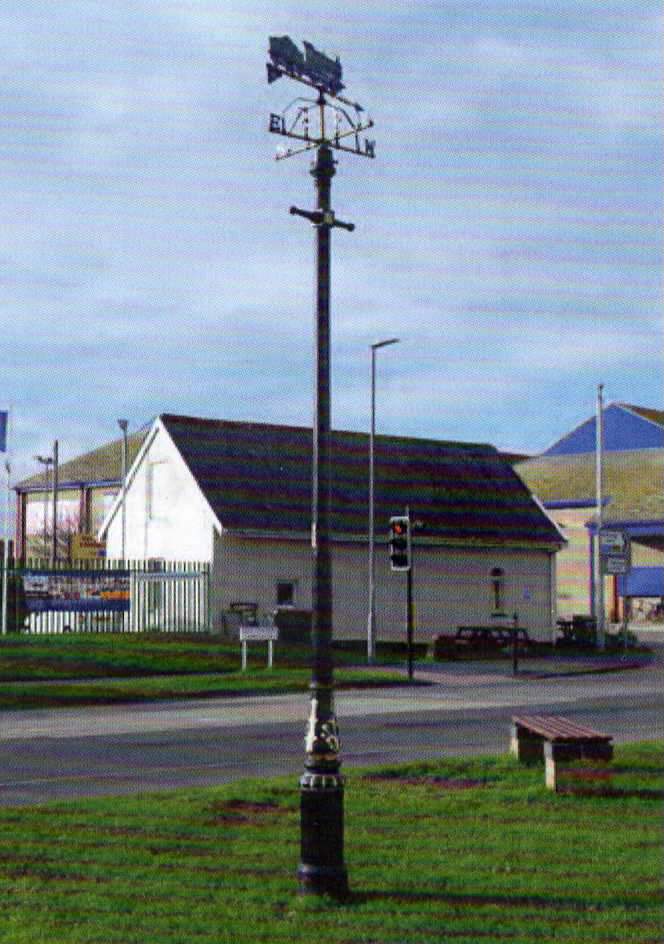
In January 2017 another information panel was put up near to the Burnham-on-Sea name board with an illustrated account of these items.
The items were formally unveiled in March 2017. At this time the children of St Andrew’s Junior School presented a framed collage of the railway and town which is on display in the Information Centre.
An illustrated walk leaflet is also available at the Information Centre.
More recently a replica signal box, based on the original Burnham box held at the Washford Railway Museum, was erected in the same general area. It is hoped that this box, as well as being a commemorative artefact, will house a number of ‘pop-up’ ventures.
28th AUGUST 2020:
The S&D Railway Heritage Walk has now been formally opened.
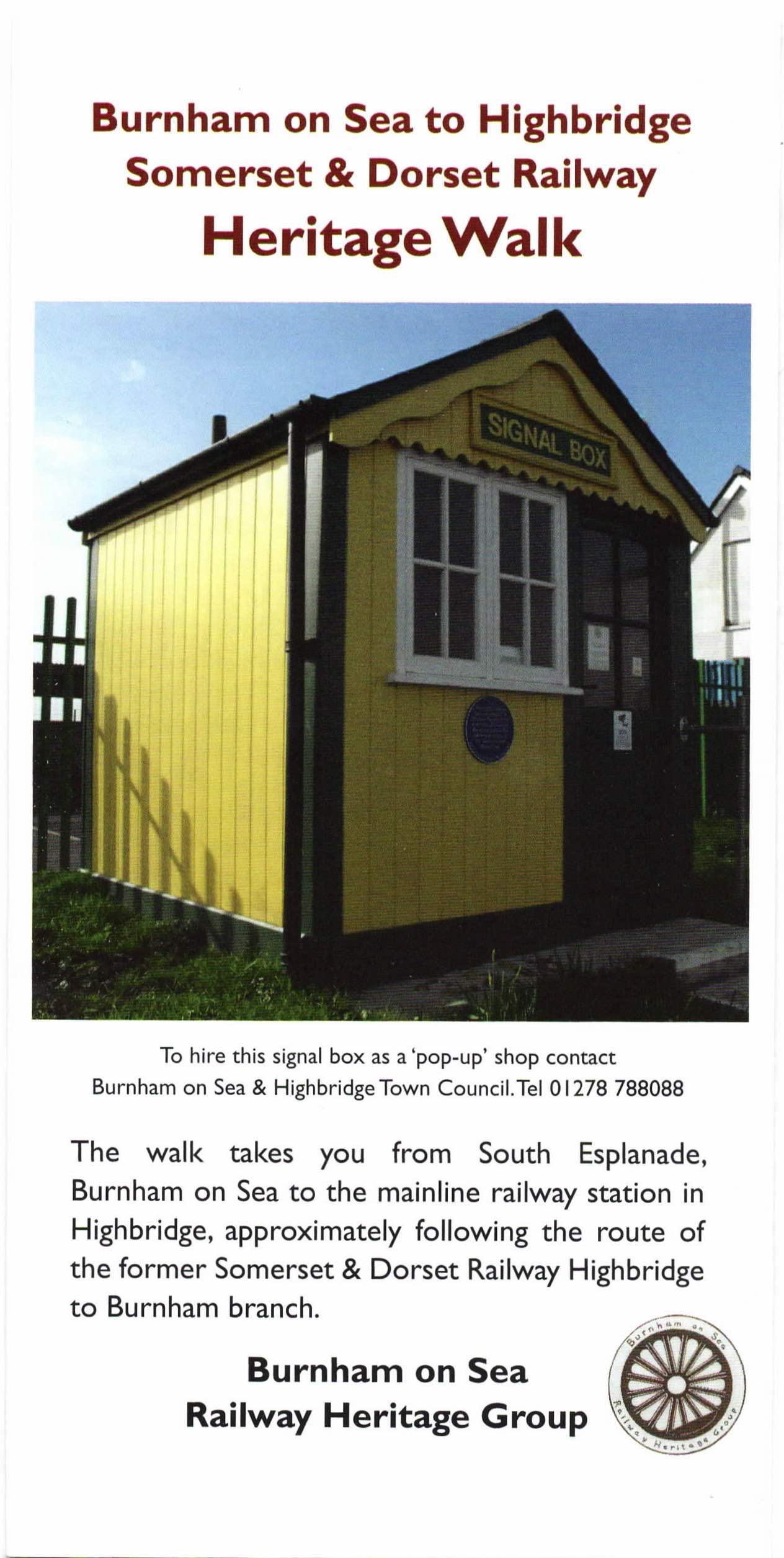
Thanks to Ann Popham for Railway Heritage Group information & images.
160 YEARS OF BURNHAM’S RAILWAY – May 2018
The 160th anniversary of the opening of the line into Burnham ( first passenger train May 3rd 1858) was commemorated by a 4 page anniversary supplement in the Burnham and Highbridge Weekly News and by a ceremony on the site of the commemorative buffer stops.
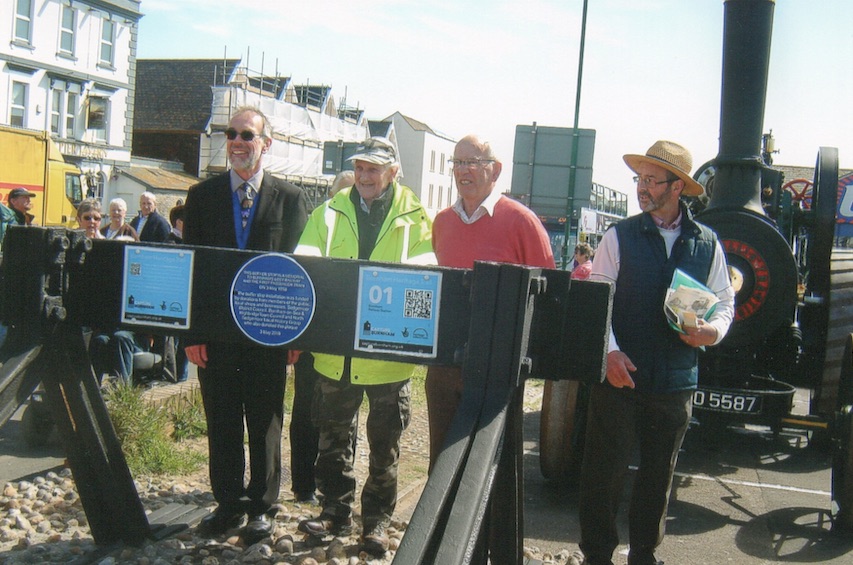
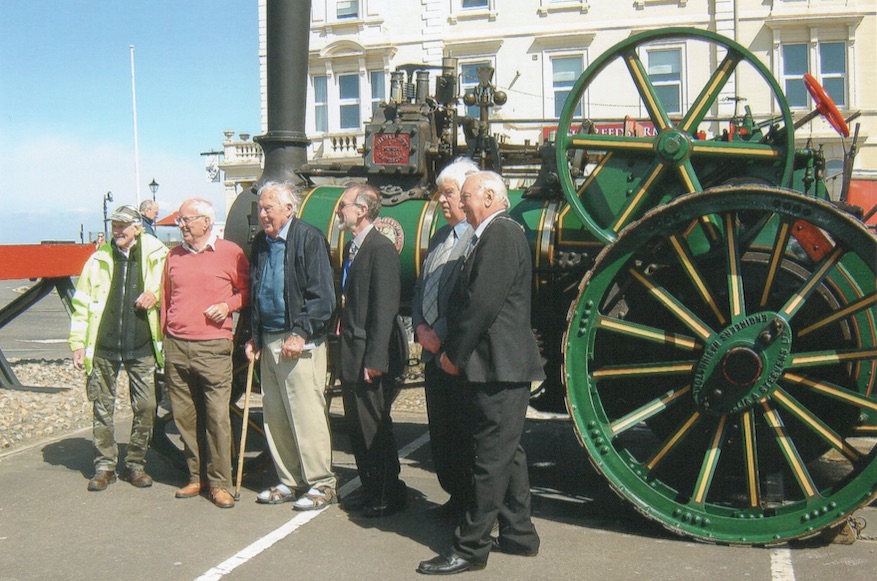
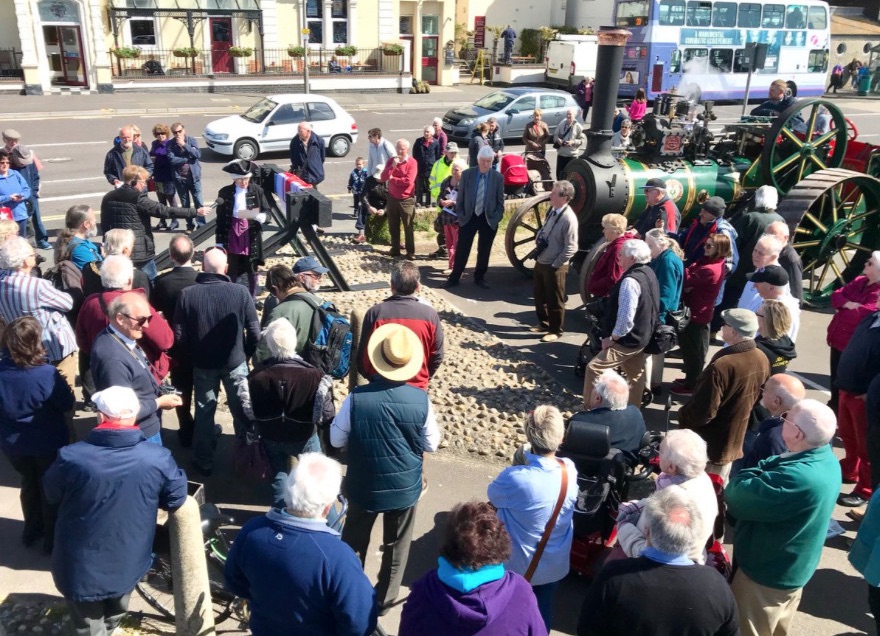
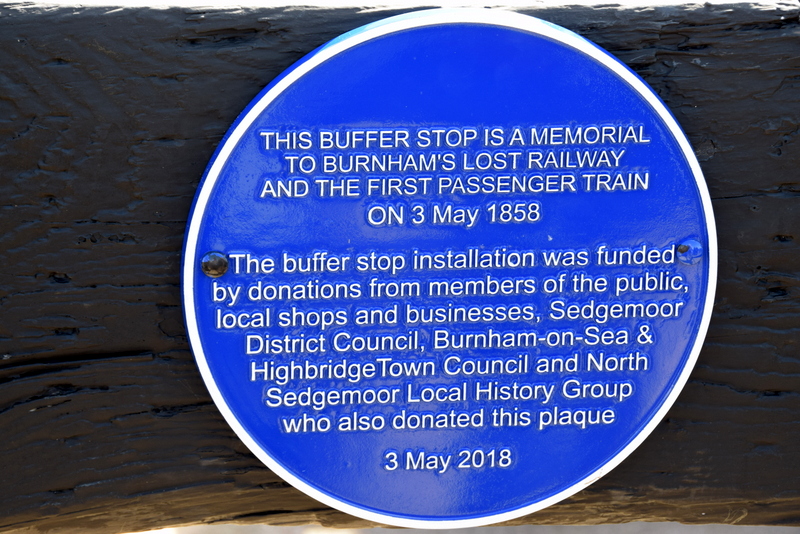
A leaflet was produced with an illustrated walk down marine Drive along the track site and through the Apex park returning along the River Brue, as well as a commemorative replica ticket.
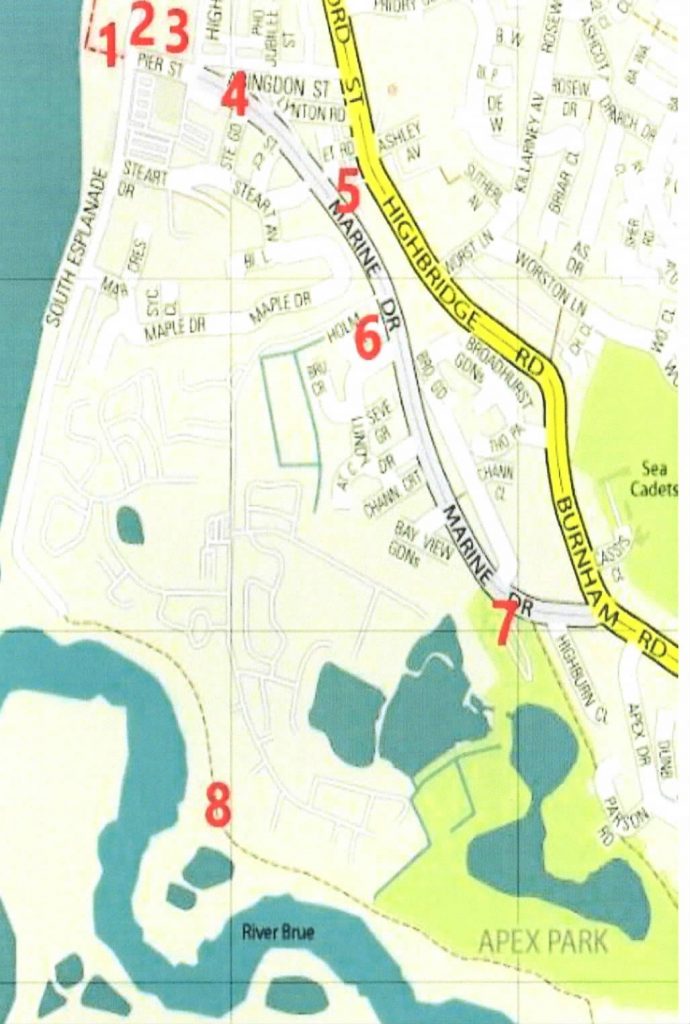
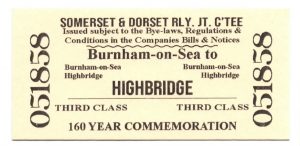
For more information see Somerset & Dorset Joint Railway
THE EDWARD SYMES TOMB RESTORATION PROJECT 2018 – 2022
A major Conservation project has recently been completed on a Chest Tomb in the Churchyard at St Michael’s Church Brent Knoll.
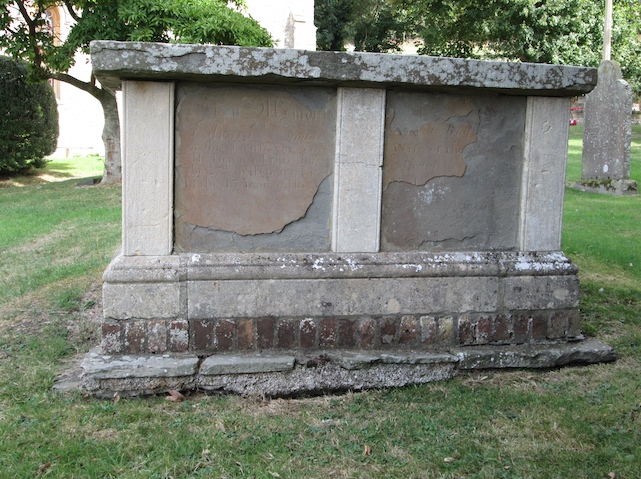
The tomb which is Grade 2 Listed marks the place where Edward Symes and his wife Elizabeth are buried. Edward was the village Surgeon and died in 1781 at the age of 43. He would have worked at a very exciting time in the medical world as at that time Dr Abraham Ludlow was helping to introduce Edward Jenner’s smallpox vaccine (the world’s first vaccine) in Bristol.
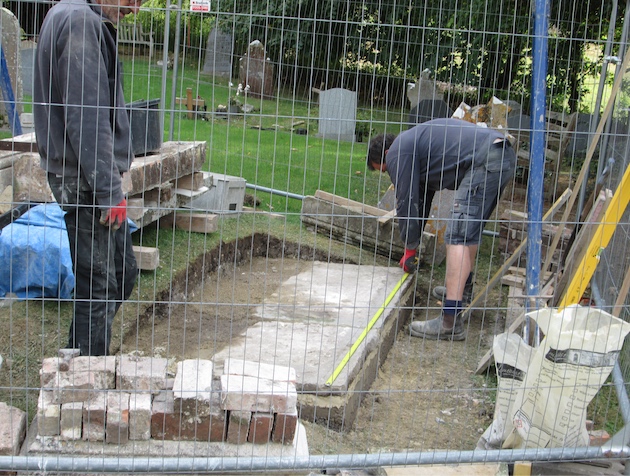
The work could be carried out thanks to a grant from Viridor Credits Environmental Company together with money from local organisations, including the North Sedgemoor Local History Society, plus local individuals. It is hoped that following this work the tomb will available for future generations to admire and enjoy. The work was done by Glynwoods & Plint masonry repair specialists of Glastonbury.
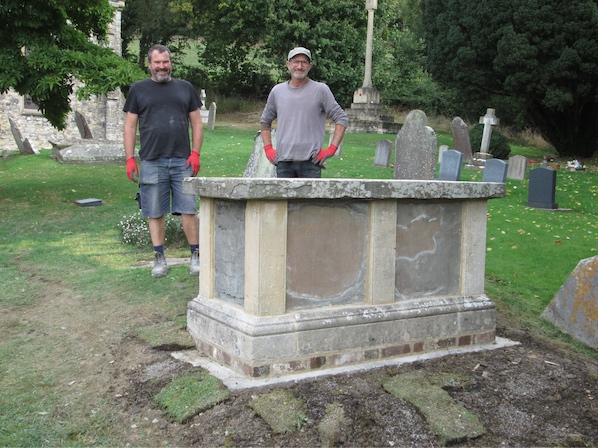
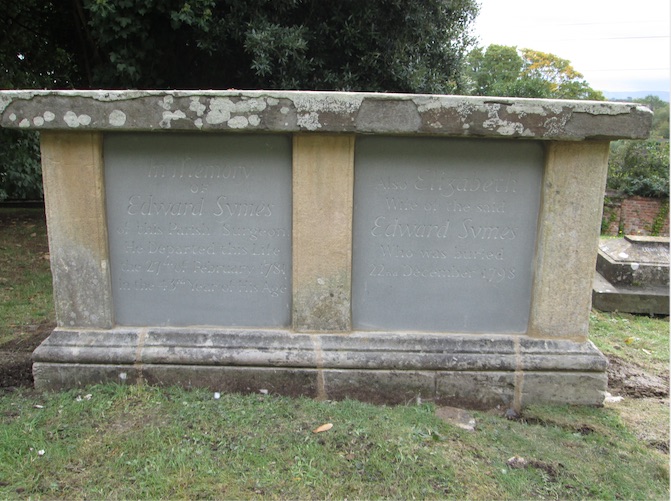
Thanks are due to Mr George Brown MBE, and Dr Ged Keele of ‘The Friend’s of St Michael’s’, for initiating and overseeing the project.
NSLHG 40th ANNIVERSARY EXHIBITION 11th May 2025
This event celebrated the 40th Anniversary of the North Sedgemoor Local History Group and announced the public opening of the Bob & Winston Thomas local history archive.
The event was arranged for Somerset Day a celebration of Alfred the Great, the King of Wessex, who in 878 gathered the people of Somerset in the Battle of Edington.
On the ground floor were displays of :
Holts Brewery – images, bottles, casks, and notices. We are hoping that relatives of the Holts Brewery will be in attendance.
Images, bricks and tiles from the Apex company plus Colthurst & Symons company that worked the area now known as Apex Park.
A collection of historic artefacts and images of the Portishead Radio Station that was situated where Mullholand Drive is now.
A display about the story of John Gunter of Tregunter.
Images of pupils at Burnham & Highbridge schools from Victorian times to 1960’s
Images and artifacts of both towns during the World Wars.
A collection of historic maps, newspapers, photo albums of Burnham and Highbridge.
Images and artifacts of Burnham and Highbridge Railway and for the young at heart a model railway where you can try driving the train.
In Room 4 the opening of Bob and Winston Thomas archive. Including historic images of many of the main streets of Burnham and Highbridge. Possibly where you now live ? Part of this collection now holds microfiche films of local newspapers from 1884 which can be seen viewed via a reader.
A series of 10-minute slide shows were given of Burnham & Highbridge ‘Now & Then’ .
On display upstairs :
Two models operated by members of the Burnham & District Model Railway Group.
A representation of the Battle of the ‘Isle of Frogs’ (Brent Knoll) between Saxons and Vikings by the War Games Group.
…………………………….
The event was opened by the Mayor and the Town Cryer at 10 o’clock
Approximately 500 people attended during the day, 200 of whom viewed the Thomas Archive.
One notable visitor was the last surviving member of the Holt family who was able to tell us what the Hall (Community Centre) was like when it was the Holt family home.









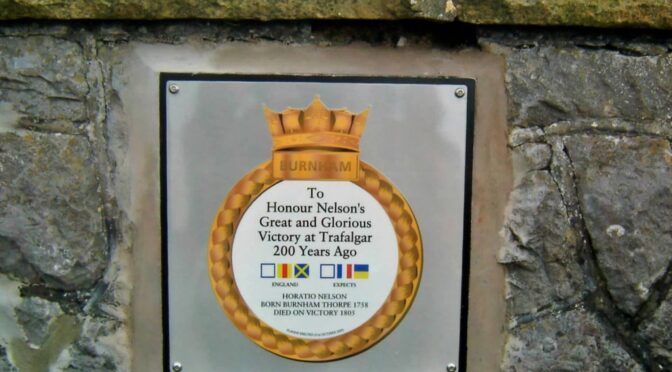
Back in about 1953 there was an old railway carriage parked near what had been Burnham station. I think it was previously a mail van, as it had several doors but no seats and only very small windows. A gang of about six or seven of us aged from six to eight, mostly boys, would congregate at this carriage after school. Two would go inside and the rest would try to storm the carriage – which they eventually would succeed in doing, since there were about six doors into it. However since those inside the carriage were a metre or so above them they could be held off successfully until they made a plan to keep the defenders occupied while some attackers came in through an undefended door. When the original defenders had been ejected two new defenders would be chosen. The game could last for hours, to the alarm of our mothers, who would begin to start wondering what had happened to us.
Thanks for your really interesting recollection Tony. I wonder whether this might spark of memories for any other readers.